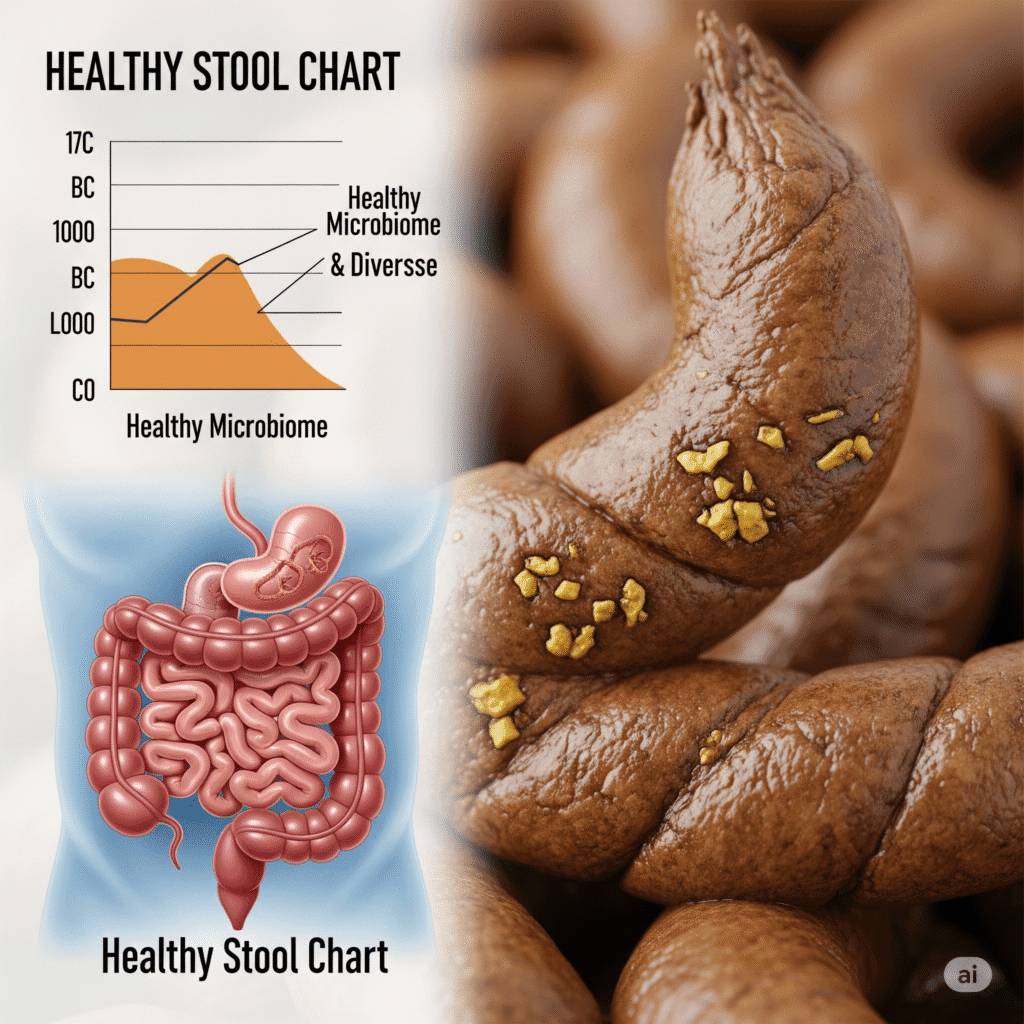
⚠️ Affiliate Disclaimer: This post may contain affiliate links, which means I may earn a small commission — at no extra cost to you — if you make a purchase through one of these links. I only recommend products or services I genuinely trust and believe can provide value. Thank you for supporting My Medical Muse!
13 Sneaky Signs of Magnesium Deficiency in Women (And How to Fix It Naturally).
Magnesium is an unsung hero in women’s health, but what happens when your body silently runs low on it? Let’s explore the subtle signs of magnesium deficiency that many females overlook and how to restore your balance naturally.
Table of Contents:
- What Is Magnesium and Why Does It Matter for Women?
- Why Magnesium Deficiency Is Common in Females
- 13 Sneaky Signs of Magnesium Deficiency in Women
- What Causes Low Magnesium Levels in Females?
- Blood Tests and Diagnosis
- How to Replenish Your Magnesium Levels
- FAQ on Magnesium Deficiency in Women
- Final Thoughts
What Is Magnesium and Why Does It Matter for Women?
Magnesium is an essential mineral involved in over 300 biochemical reactions in the body. It plays a key role in energy production, nerve signaling, muscle relaxation, blood pressure control, and emotional stability.
For women, magnesium is especially important because it supports hormonal balance throughout the menstrual cycle, pregnancy, and menopause. It helps regulate neurotransmitters such as serotonin and GABA, which influence mood, stress tolerance, and anxiety levels.
Magnesium also supports bone health by aiding calcium absorption and activating vitamin D, helping reduce long-term osteoporosis risk. In addition, it relaxes uterine muscles, which can ease menstrual cramps and discomfort.
Finally, magnesium promotes better sleep by calming the nervous system and supporting melatonin release, making it a vital mineral for overall female health and daily functioning.
Why Magnesium Deficiency Is Common in Females
Magnesium deficiency affects up to 70% of women often undiagnosed, several unique factors put women at risk:
- Menstrual blood loss depletes minerals
- Pregnancy and breastfeeding increase demand
- Oral contraceptives may interfere with magnesium metabolism
- Low intake of whole foods like leafy greens and legumes
- Stress depletes magnesium reserves rapidly due to cortisol spikes
- Chronic dieting or calorie restriction, common among women, can also reduce intake
These risks are compounded in women with hormonal disorders, PCOS, perimenopause, and digestive issues.
13 Sneaky Signs of Magnesium Deficiency in Women
1. Muscle Cramps or Twitches
Magnesium regulates muscle contraction and relaxation by controlling calcium flow in muscle cells, without it, muscles may spasm involuntarily. Example, frequent foot cramps while stretching or a twitching eyelid during the day might not be “just stress” it could be your body signaling low magnesium.
Did you know? Magnesium is a frontline remedy for leg cramps during pregnancy.
2. Fatigue and Weakness
Magnesium helps convert glucose into usable energy (ATP) without enough, energy production stalls, even if you sleep well.
Chronic low magnesium can impair mitochondrial function, leading to persistent fatigue and muscle weakness, especially in women with thyroid disorders or anemia.
3. Poor Sleep or Insomnia
Magnesium regulates melatonin and activates GABA, the neurotransmitter that helps you relax, without it, your nervous system stays overstimulated. You fall asleep but wake up multiple times or feel unrested despite 7-8 hours in bed.
Also Read:Why Do I Feel Tired Even After Sleeping 8 Hours?
Magnesium glycinate is ideal before bed, it promotes calm without causing digestive issues.
4. Mood Swings, Anxiety, or Depression
Magnesium influences neurotransmitters like serotonin, dopamine, and GABA , all vital for mood regulation.
Studies show low magnesium is linked to increased risk of premenstrual dysphoric disorder (PMDD), postpartum depression, and generalized anxiety disorder. Magnesium acts as a natural NMDA receptor blocker, similar to how some antidepressants work.
5. Premenstrual Symptoms
Bloating, cravings, irritability, breast tenderness, these PMS symptoms are often worsened by magnesium deficiency.
Magnesium reduces prostaglandins (inflammatory compounds) and relaxes smooth muscles in the uterus. Many gynecologists recommend 200-400 mg of magnesium daily in the two weeks before menstruation.
6. Migraines or Hormonal Headaches
Magnesium stabilizes blood vessel tone and reduces neuronal hyperexcitability, both of which are migraine triggers. Magnesium L-threonate crosses the blood-brain barrier and supports brain magnesium levels.
Women with menstrual migraines often improve significantly with regular magnesium supplementation.
7. Numbness or Tingling
Magnesium is essential for healthy nerve signaling. Deficiency can mimic neuropathy, causing numbness, tingling, or pins-and-needles sensations.
Special note for pregnancy: These symptoms can worsen in the third trimester due to increased magnesium needs.
8. Sugar and Carb Cravings
Magnesium helps regulate blood sugar and insulin,when levels drop, your body may crave quick energy, sugar and refined carbs. Many women notice sugar cravings worsen just before their period, when magnesium naturally dips.
9. Irregular Heartbeat or Palpitations
Magnesium regulates electrical impulses in the heart, deficiency can cause irregular beats, fluttering, or a racing pulse. Always rule out heart disease, but consider magnesium as a supporting therapy especially for women with anxiety-related palpitations.
10. Constipation
Magnesium relaxes the muscles of your intestines, low levels lead to slowed bowel movements and hard stools. Magnesium citrate or magnesium oxide (in small doses) is commonly used for gentle relief.
Also Read: Other Causes of Constipation.
11. Difficulty Coping With Stress
Stress burns through magnesium stores, in turn magnesium deficiency makes you more reactive and less resilient. This creates a feedback loop, stress depletes magnesium, and low magnesium makes stress feel more overwhelming.
12. Thinning Hair or Brittle Nails
Magnesium supports protein synthesis and keratin formation, vital for strong nails and hair growth.
Thyroid disorders and iron deficiency, which often coexist with magnesium deficiency in women.
13. Bone Pain or Osteoporosis
Magnesium works synergistically with vitamin D and calcium without it, bones weaken over time, increasing the risk of osteoporosis. Postmenopausal women are especially vulnerable due to estrogen decline and nutrient loss.
What Causes Low Magnesium Levels in Females?
- Menstrual blood loss
- Pregnancy and breastfeeding
- Birth control pills and hormone therapy
- Alcohol or caffeine overuse
- Heavy sweating (workouts, hot climates)
- GI disorders: IBS, Crohn’s, celiac
- Medications: diuretics, antibiotics, PPIs
- Chronic stress and burnout
- Poor soil quality and processed food diets
- Even something as innocent as a daily latte or sweaty gym session can chip away at your magnesium stores.
Blood Tests and Diagnosis
Standard serum magnesium often appears normal even when body stores are low.
- RBC magnesium test: measures magnesium inside red blood cells
- Magnesium loading test: Evaluates retention after a magnesium dose
That said, many doctors diagnose magnesium deficiency based on symptoms and your response to supplementation.
How to Replenish Your Magnesium Levels
1. Eat Magnesium-Rich Foods:
Best sources includes pumpkin seeds (150 mg per ounce), spinach, almonds, black beans, avocados, oats, tofu, dark chocolate (one square can contain 60-80 mg)
Pair with vitamin D- and B6-rich foods to boost absorption.
2. Supplement Smartly
Choose based on your needs: Form Best For
- Magnesium Glycinate Sleep, anxiety
- Magnesium Citrate Constipation
- Magnesium L-threonate Brain health
- Magnesium Malate Energy, muscle fatigue
- Magnesium Chloride Overall absorption
Avoid magnesium oxide: poorly absorbed and may cause loose stools.
Recommended products:
Try Topical Magnesium
Perfect if you have GI sensitivity:
- Magnesium oils and lotions
- Epsom salt soaks
- Magnesium gel for tight muscles.
FAQ on Magnesium Deficiency in Women
- Can I take magnesium during pregnancy?
Yes, in fact, magnesium needs increase during pregnancy. Always check with your OB-GYN first, especially for dosage.
- What time of day is best to take magnesium?
For sleep or anxiety take it 1-2 hours before bedtime. for digestion or muscle support, take with meals.
- Can I take too much magnesium?
Yes. High doses (especially of poorly absorbed forms) can cause diarrhea or nausea. Stick to 200-400 mg/day unless your doctor advises more.
- How long before I feel better?
Some people notice better sleep or reduced cramps within a week. Chronic symptoms may take a few weeks to improve.
- What depletes magnesium quickly?
Stress, sugar, caffeine, alcohol, antibiotics, and birth control pills are the most common culprits.
Final Thoughts
Magnesium deficiency in women is far more common than it is recognized, and it often goes unnoticed because its symptoms overlap with everyday complaints such as muscle cramps, persistent fatigue, poor sleep, and mood changes. These signs are frequently dismissed as stress, hormonal fluctuations, or a normal part of a busy life, allowing deficiency to persist for months or even years.
The good news is that magnesium deficiency is usually correctable. Increasing intake through magnesium-rich foods is the first step, and when dietary intake is insufficient, well-absorbed supplements can help restore healthy levels. Just as important is paying attention to recurring symptoms and recognizing them as potential signals rather than inconveniences to ignore.
When magnesium levels are replenished, many women notice meaningful improvements, including better energy, improved mental clarity, calmer mood, more restorative sleep, and reduced menstrual discomfort. Supporting magnesium status is a simple but powerful way to regain balance and improve overall physical and emotional well-being.
👩⚕️ Need Personalized Health Advice?
Get expert guidance tailored to your unique health concerns through MuseCare Consult. Our licensed doctors are here to help you understand your symptoms, medications, and lab results—confidentially and affordably.
👉 Book a MuseCare Consult NowRelated Post:
- Iron Supplement Side Effects: What You Need to Know Before You Start.
- Can Vitamin Deficiency Make You Feel Tired All the Time?
- 7 Critical Facts You Must Know: How to Choose the Right Multivitamin
- 15 Hidden Reasons You Feel “Wired but Tired” at Night and How to Fix It
- 12 Powerful insights Into What Your Diet Really Needs (micronutrients and Supplements)
- 7 Powerful Supplements for Diabetic Nerve Pain Relief (Backed by Science)
Dr. Ijasusi Bamidele, MBBS (Binzhou Medical University, China), is a medical doctor with 5 years of clinical experience and founder of MyMedicalMuse.com, a subsidiary of Delimann Limited. As a health content writer for audiences in the USA, Canada, and Europe, Dr. Ijasusi helps readers understand complex health conditions, recognize why they have certain symptoms, and apply practical lifestyle modifications to improve well-being


